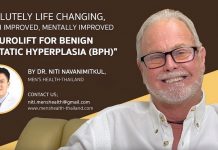Late-onset Diabetes Mellitus, sometimes called Type 2 Diabetes, is a disease which is increasing, in line with many sufferers’ increasing waistline. While the tendency to become a diabetic may be familial, it does not necessarily mean you have a 100 percent chance of suffering from the disease yourself. There are some factors you can make work to your benefit.
Recently, the popular press ran the story that if you went on a 600 calorie diet you could reverse your diabetes. This was after Newcastle University researchers found the low calorie diet reduced fat levels in the pancreas and liver, which helped insulin (the sugar balance chemical) production return to normal.
Keith Frayn, professor of human metabolism at the University of Oxford, said the Newcastle study was important. “People who lose large amounts of weight following surgery to alter their stomach size or the plumbing of their intestines often lose their diabetes and no longer need treatment. This study shows that a period of marked weight loss can produce the same reversal of Type 2 diabetes. It offers great hope for many people with diabetes, although it must be said that not everyone will find it possible to stick to the extremely low-calorie diet used in this study.”
Dr Iain Frame, director of research at Diabetes UK, which funded the study, sounded a caution, saying the diet was not an easy fix. “Such a drastic diet should only be undertaken under medical supervision. Despite being a very small trial, we look forward to future results particularly to see whether the reversal would remain in the long term.”
And it certainly was a small trial with only 11 people who had been diagnosed with diabetes in the last four years enrolled. At the end of three months, seven out of the 11 people studied were free of diabetes three months later, say findings published in the journal. I’m sorry, but 11 people is not enough. I will be impressed when they have a sample of 11,000,000.
A few weeks later, and along comes another “cure” for Type 2 Diabetes. Researchers in Australia saying that they had found that a decreased level of Vitamin D in the blood increased the risk of diabetes, and then postulated that by increasing the level of Vitamin D this would be beneficial, and it could lead to ‘at risk’ patients using vitamin D supplements along with diet and exercise to stop their development of the condition.
The research, which tested the blood of 5,200 people (now that’s a better number than 11, but still a little short of my 11,000,000) found every increase of 25 nanomoles of vitamin D per liter of blood (nmol/L) equated to a 24 percent reduced risk of diabetes. A co-author, Zhong Lu, a pathologist at Monash Medical Centre and Melbourne Pathology, said that people with a level of vitamin D in their blood that is less than 50 nmol/L are deficient, although some experts believe the threshold for deficiency should be set higher.
The study’s co-author Ken Sikaris, a pathologist at Melbourne Pathology, said the research could have a big impact in slowing increasing rates of diabetes in Australia. “It’s hard to underestimate how important this might be,” he said.
The study, published in the journal Diabetes Care and presented by Dr Lu at a conference of the Australian and New Zealand College of Anesthetists, retested blood samples taken as part of the major AusDiab study of risk factors for diabetes. Now this was a better study which was made between 1999 and 2005 and is the most recent to widely test for diabetes, revealed 7.4 percent of Australians over 25 had the condition. However, the numbers are not looking so good now, are they, with 92.6 percent not being Vitamin D deficient. “Hard to underestimate”? Hmmmm.
But Professor Peter Ebeling, from the University of Melbourne and Western Health, said that in light of the findings he was conducting a trial to test whether vitamin D supplements could help prevent diabetes.
Professor Ebeling said such research had progressed slowly in the past because it had not attracted funding, particularly from drug companies.
And there’s the nub of it all – attracting funding.




